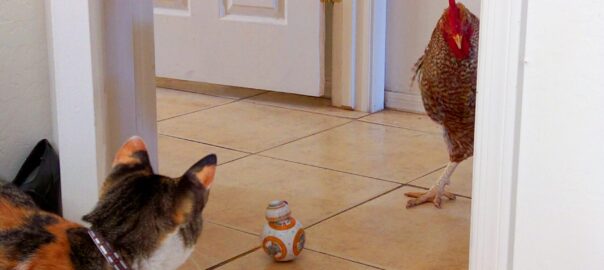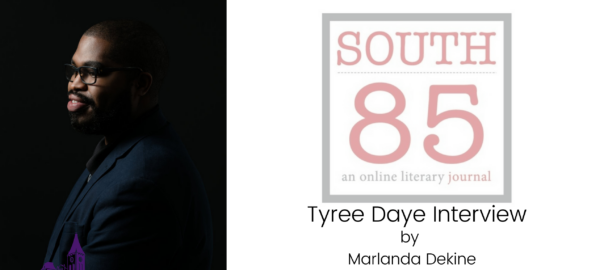By: Erin York
“How do I justify my educational journey to not only family and friends who do not see a connection between my two areas of study but to future employers as well?”
Often, I find myself separating art and science. Perhaps I learned to do so when I was young, listening to refrains of “boys are good at math and science, and girls study literature and language.” While we have continuous reminders of how antiquated and just plain wrong such sentiments are, I realize how those early citational chains shaped my own pursuit of knowledge.
I took up writing at an early age, had my first poem published at 14, and even received a $25 paycheck for it. I attended dance classes, traveled to writing conferences, and enjoyed piano, painting, and gardening, hobbies that have persisted into my adult life. On the other hand, I enrolled in the minimum number of science and math classes during my undergraduate degree and filled up my elective slots studying creative writing, learning to speak Mandarin, and deciding where I stood on the debate of Shakespeare’s identity.
Even enrolling in my first master’s degree, which I received in Higher Education Administration in spring 2017, failed to daunt me because social sciences seemed close enough to subjects like communications and anthropology that I felt homed. I could write papers, instead of jotting down the solutions to problems under a timed test. However, as I entered my first quantitative research courses, I heard the destructive discourse in my mind again that I was unfit to learn statistical software, coding and analysis, to build new models for generalizable phenomena. But I muddled my way through those courses all the way into a PhD.
While pursuing my PhD, I decided to also search for MFA programs across the country that offered an emphasis in not only fiction but specifically in Young Adult fiction. In my own South Carolinian backyard, I stumbled upon Converse College’s MFA program that not only was low-residency but also touted YA alumni who were actively publishing. Immediately I began my application.
Art and Science or is it Art or Science?
During the course of pursuing these dual terminal degrees, I found myself on a continual quest for my nexus: where do art and science come together? How do I justify my educational journey to not only family and friends who do not see a connection between my two areas of study but to future employers as well. However, the answers to the intersections have been multiplicitous, the opportunities abundant, and the linkages continual.
I happened to take a qualitative methods course the same semester I completed a second emphasis in Creative Nonfiction for my MFA. It was in the overlap of those courses that I began to piece together exactly how well a degree in educational science and one in the art of writing could nest in my own future work.
Tell It Slant by authors Brenda Miller and Susanne Antonetta covers many tenets of creative nonfiction, including writers’ identity, ethical controversies in truth(s) telling, artifact recovery, the importance of positioning your writing in time and history, and community building. Each of these tenets correlate with the qualitative research method of autoethnography.
What is Autoethnography?
Autoethnography was founded as a research method by Carolyn Ellis, Tony Adams, and Arthur Bochner, among other contributing scholars from a variety of fields who participated in the paradigm shift from Positivism (the belief in full objectivity in research) to paradigms that not only acknowledge but embrace the subjectivity of a researcher in relation to their research, much as authors of creative nonfiction often center their experiences in memoir or the lyric essay.
Autoethnography “combines characteristics of autobiography and ethnography” (Ellis, Adams & Bochner, 2011), while interrogating socio-cultural or political phenomena from the primary lens of the researcher. Layered upon the researcher’s lens may also be framings from theories, such as Critical Race, Queer, or Feminist foundations. Autoethnographers must then determine how to translate their findings into aesthetically pleasing ways, often in the mode of storytelling.
Autoethnography and Creative Nonfiction
The similarities between autoethnography and creative nonfiction already leap off the page, right? Author and researcher become one. The importance of time, situatedness, identity, and framings are central to both pursuits. Likewise, heirlooms may be the subject of a family essay labeled as creative nonfiction, whereas the tokens of a queer activist now passed may be a focal point in an autoethnographer’s essay about queer identity in today’s Western society.
Both autoethnography and creative nonfiction value semantics and form. Autoethnographer Carolyn Ellis took her study of written arts into crafting of a novel entitled The Ethnographic I: A Methodological Novel, in which she created composite characters, made fictionalized accounts of her professorship in the Academy, and then included interview transcripts and her research design, truly pushing the boundaries between science and art, to produce an interdisciplinary book.
Autoethnography, in fact, touts a founding principle actually does work to disrupt the constructed binaries in Western society, like the one between art and science. Doing so allows for greater accessibility of research to wider audiences and positions art as important as scientific pursuits, the latter of which can unfortunately be perceived as holding greater value in a consumerist, late-capitalistic society.
When to Tactfully Weave in Fictitious Content in an Authoethnography and Creative Nonfiction
Both autoethnography and authors of creative nonfiction face similar ethical issues and concerns. Undertaking any writing project requires commitment to the craft, to structure, and to the study of established and emerging forms. This is no easy feat, even for those gifted in the field. Autoethnographers and authors of creative nonfiction must consistently ask themselves questions on the ethics of their writing. For authors, this may emerge in the form of wondering how their truth may match up to the truths that their loved ones may hold. They may wonder if for metaphorical significance they can change blue objects to red or a cat into a dog. For autoethnographers, their work must be able to be measured up against standards of research validity. How have they kept their analytical memos? Whose interview transcripts fit their overall narrative? What is their research protocol?
The “Truth,” in both autoethnography and creative nonfiction may find itself asserting questions of validity and ethical natures, but both autoethnographers and authors must work against such Positivist notions of objectivity and instead lean into their subjectivity and positionality in their work. In fact, the author’s identity is central and should be honored in both methods.
The Pros and Cons of Autoethnography and Creative Nonfiction
While creative nonfiction and autoethnography have both established themselves in their respective fields, neither finds themselves free from controversy and critiques. Subjective pursuits, however, even when evaluated by peer review, the publishing process, and measures of validity, will no doubt continue to appeal to many, while alienating those who value only “hard facts” and “right answers.” Unfortunately, at least in this researcher-writer’s opinion, or perhaps fortunately, we only ever know what we know until we learn differently. Even the scientific method, itself, employs repetition and allows for margins of error because outliers and new information can always reshape what we believe we know, even if it is printed in textbooks, encyclopedias, or written online as fact. How exciting that both science and art, and scientific art, can be in teaching, in learning, and in adapting to change!
Commingling Science and Art. It is Possible!
While I still cannot say I’d like to take classes on quantum physics or advanced calculus tomorrow (part of that might just be some severe senioritis), I can fully call myself both a creative writer and a researcher capable of coding, completing analytical work, and participating in mixed methods. I value the spaces in which my pursuit of two terminal degrees can find room for one another, and I enjoy the work of disrupting binaries that continue to persist in dominant discourses in Western society.
Girls can study science and math. Boys can love art, dance, writing, and music. Nonbinary folks can study whatever their minds and hearts desire. While I’m sure most of us realize that by now, it bears repeating. And repeating. And repeating.
Science and art without one another could arguably not exist, and continuing to separate them and place them into hierarchies does nothing but damage society. So onto arts-based research design, New Journalism, and fiction and writing of all kinds seeped into all of the branches knowledge, new and old that we—yes, each one of us—have the power to learn, teach, and create!
Tell me how you combine science and art in your own craft or interests. Tell me what harmful societal discourses you have unlearned and how you have reoriented your own lives. I look forward to your comments.
Yours,
Erin York

Erin York is concurrently enrolled in PhD and MFA programs where she is studying education and creative writing. Her areas of interest include arts-based representations of research, autoethnography, creative nonfiction, and queer perspectives–she also loves to read (and write) a good zombie novel. In 2020, she received a graduate certificate in Women and Gender Studies where she completed a capstone project exploring Queer Theory. Previously, in 2017, she received her MEd with high honors from the University of South Carolina. Before that, she graduated magna cum laude with her BA in English from the University of Missouri-Kansas City. Her first book of poetry, The Light You Cannot Touch, won the international Author’s Circle award for Poetry, and she has been the recipient of several national and regional awards for her work. You can find Erin gardening, playing video games, or enjoying a hot cup of tea when she isn’t playing with words.

























